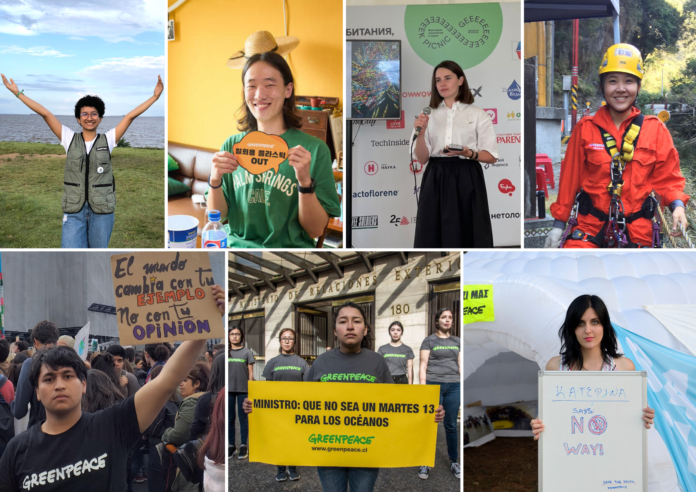Volunteers are at the heart of Greenpeace. From painting signs, helping to organise local demonstrations, public speaking about Greenpeace campaigns, or climbing in a non violent direct action, our volunteers are made up of concerned citizens around the world who are rising up and taking action to protect people and the planet.
So who are they, what do they do, and more importantly, what drives them? Here’s a selection of some Greenpeace volunteers all around the world.
Cristina Robledo Arellano, 22, Greenpeace Chile
“You have to act for the change you want to see happening. Even if you think the actions of one person can’t change anything, a lot of individuals can become a huge force.”
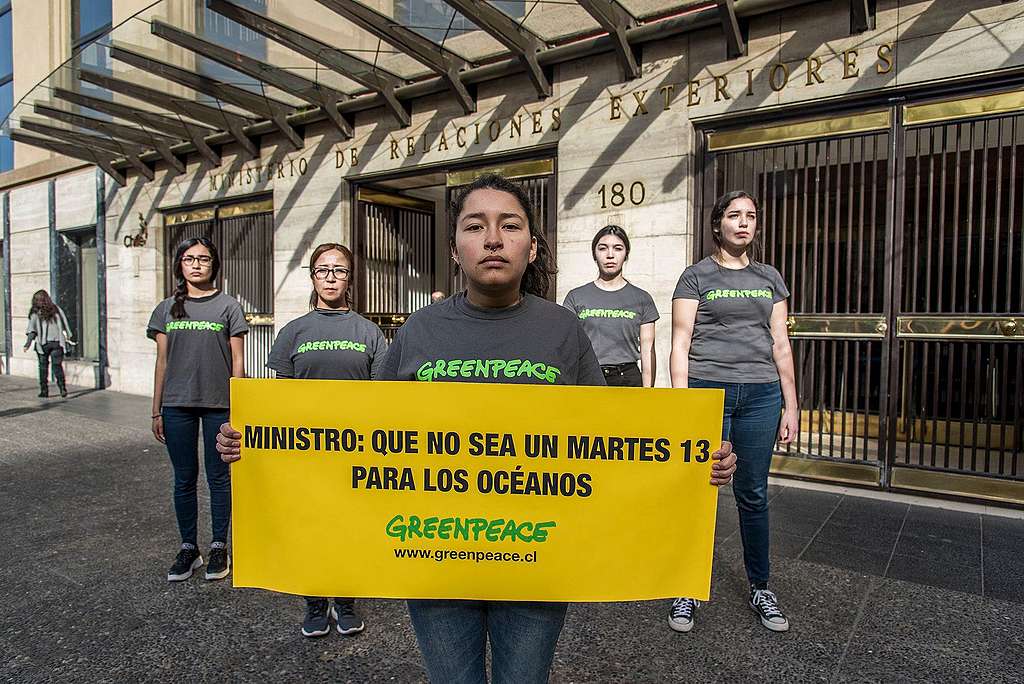
Living in Chile, Christina saw how vulnerable her country is to rising sea levels and the impacts of global warming.
“Chile has a long coast. There could be a lot of places that could be destroyed or just disappear due to the rise of the ocean,” she says.
With Greenpeace Chile, she has participated in plastic-free campaigns, protested against salmon farms in the south of Chile and the polluting industries on the Quintero Bay, and fought for the constitutional recognition of the right to access water. As a law student, she is also applying her knowledge with Greenpeace Chile’s politics team, keeping an eye on environmental matters whether in courts or in parliament.
As a Greenpeace volunteer, she has encountered firsthand the power of solidarity and mobilisation for a cause: during the wildfires of the Amazon rainforest, Greenpeace Chile organised an impromptu protest outside the Brazil embassy in Santiago.
“It was an idea of the moment, so we just wore orange t-shirts and some volunteers made little flames for each of us. The best part of that day was that even as it was not planned with anticipation, almost every active volunteer arrived at the Greenpeace office that afternoon ready to manifest against the destruction of the Amazon, and to our planet,” she says.
One of the most moving experiences she experienced was in 2019, when she visited Aculeo Lake, near Santiago, with the Greenpeace Chile team and other volunteers. Once a favourite weekend getaway for people from the capital, the lake has completely dried up after a 10-year drought in the country.
“It was amazing yet awful to stand in the dry dirt where people used to fish, swim, and practice all kinds of water sports. We put together a huge warning sign at the bottom of what used to be a lake so people could see the impact of what we are doing to our world. This lake went dry in less than 10 years, and drought is growing quickly in Chile,” she says.
What one change would you most like to see?
“Anything that could give me hope that there is still a chance for change, and that it is not too late.”
Junghoe Kim, actor, 30, Greenpeace Korea
“I take global warming very seriously. It is evident that we are suffering from loss of lives and resources, and facing unprecedented natural disasters caused by the planet’s rising temperatures.”
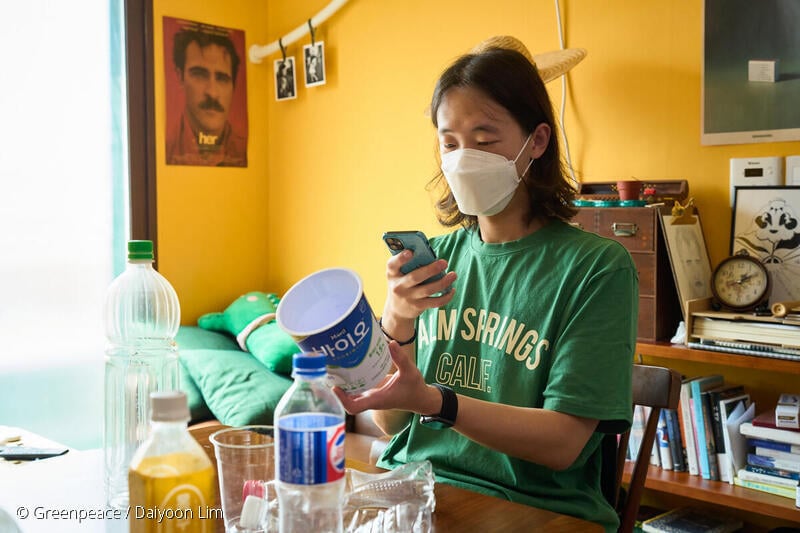
In 2022, Korean actor Junghoe Kim wrote and produced a play called ‘Flow:er’ to raise awareness about environmental issues, particularly the plastic scourge. The play depicts the different perspectives of individuals, the government and the world on environmental problems and explores the consequences of indifferent attitudes.
Subsequently, Junghoe started volunteering with Greenpeace Korea by participating in the Pl-cok (‘pl’ of plastic + ‘cok’ of Korean word meaning staying put) Survey, a campaign aimed at raising awareness of the excessive level of plastic consumption while singling out corporations that are not making an effort to reduce plastic waste. The Pl-cok Survey campaign started with around 800 participants but in two years has expanded to more than 4000.
After a week of collecting data on his plastic waste, Junghoe was shocked at how pervasive and enormous the problem was. “It was like a wake-up call. Even though I considered myself environmentally conscious, I still had a hard time reducing plastic waste in my life.”
Volunteering is important to Junghoe as it allows him to work together with other defenders of the earth rather than trying to do it alone. He says, “Volunteering assures me that there are many people wanting and trying to make a better world and there is hope after all.”
Which changes do you anticipate the most?
“I want to see nations, governments, corporations, and citizens of the world work together toward protecting and saving the earth and abandon the ways we live now. “
Katerina Papagiannopoulou, 33, Greenpeace Greece
“I was mesmerized at how the volunteers organized and evolved environmental actions in the organization surrounded by the ideology of non-violence.”
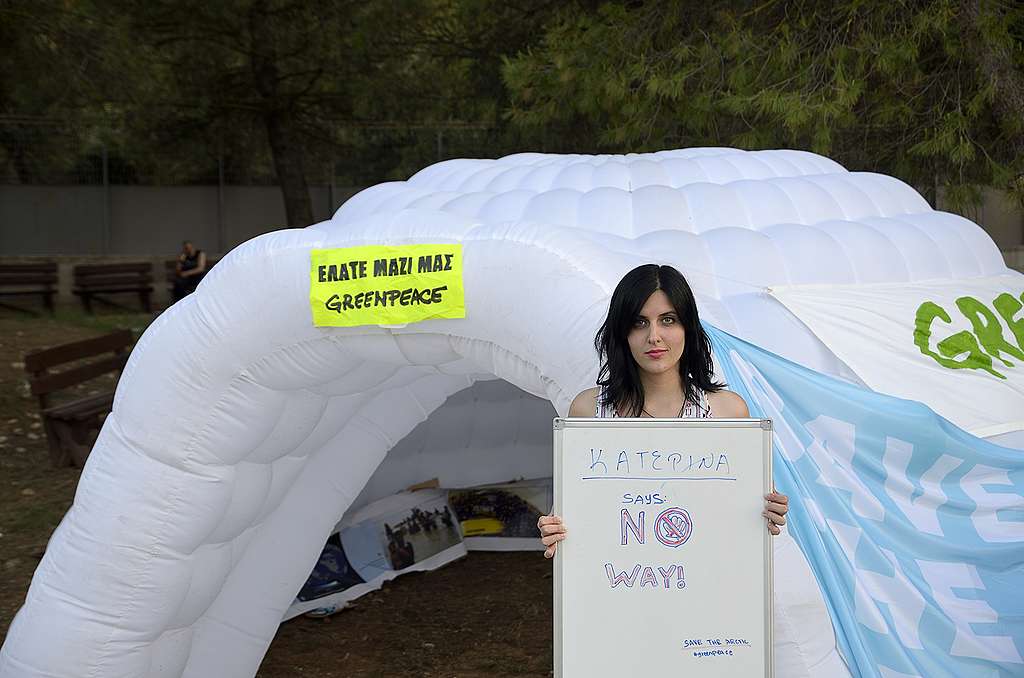
A dedicated team leader and a volunteer trainer, Katerina has participated and organised many different Greenpeace campaigns and activities, including public awareness events, banner paintings, and producing research and writing guidelines for other volunteers. A volunteer since 2012, she now leads the Non-Violence Training at Greenpeace Greece, to encourage the use of non-violent direct action to fight for social and environmental justice.
“Volunteering makes you feel less alone in a global society where human rights and the environment are ideologies of little value. Volunteering is a way of life and the actions of your dreams for a better tomorrow,” she says.
When the Rainbow Warrior visited Greece in 2014, Katerina travelled onboard the ship for two weeks to raise public awareness of offshore oil extraction in the Ionian sea.
“To be honest, I think I never got enough sleep inside the ship as everything was so exciting that I didn’t want to miss a single thing! I remember even hiding from my team as they were chasing me to get some rest. I know that they were right but being on a ship with so much history gave me chills!”
Right now, she is most concerned about oil drilling in the Greek seas, an issue that is gaining urgency in the light of the global energy crisis.
“Environmental organizations have succeeded to pause them [the oil drills] but unfortunately, the Prime Minister of Greece has announced that they will continue destroying and killing a rich biodiversity of the Mediterranean Sea,” she says.
Marcos Salazar, 24, Greenpeace Argentina
“I feel it is important to be a volunteer because we are all different but there is something that brings us together. There is something in common, the importance and care for the environment”
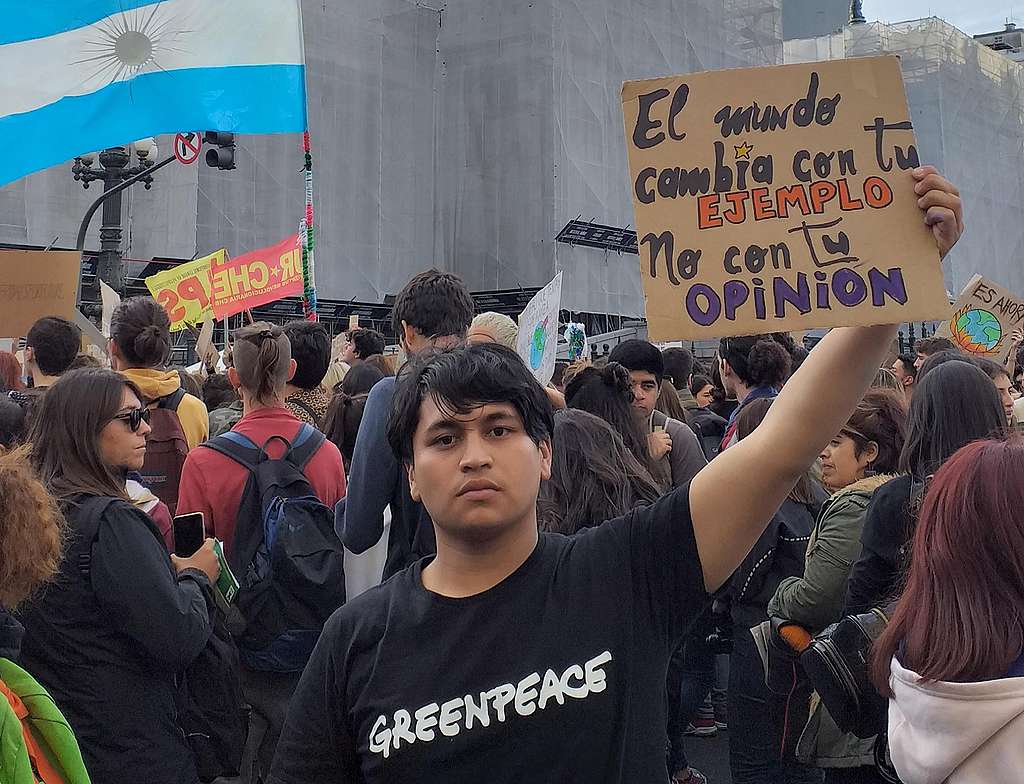
Marcos, a youth leader and university student, lives in Salta, a province located northwest of Argentina, where he is already experiencing the impact of climate change such as the instability of seasons and the variation in the weather on a daily basis. “But what really worries me is that people don’t notice it. It goes unnoticed, and it makes me wonder why,” he says.
Even more alarming, the higher temperatures and droughts are causing forest fires to become more common in the area, which he says the government justifies by saying that it is out of their control.
As a leader and spokesperson for the local Greenpeace group in Salta, Marcos is no stranger to environmental activism as he participates in local marches and debates, and meets with other local organizations.
His most memorable experience with Greenpeace was participating in his first Non-Violent Direct Action (NVDA) to fight for “the last 20”, referring to the Yaguaretes that live in the forest of the great Argentinean Chaco. Together with the team and other volunteers, they hung a huge banner on General Belgrano Bridge. Marcos was moved by the support of the public who stopped to give them water, ice, and fruit.
“Everything was very exciting, and of course at the end of the activity the hug between the whole team, a tremendous feeling, difficult to put into words,” he says.
For Marcos, volunteering has been a valuable learning experience and helped to broaden his vision while making friendships. “It’s so great to be able to meet different cultures, share opinions, inform ourselves and exchange data about the local environmental problems of each region.”
What change would you most like to see?
“One change I would like to see, and desire most, is to see political leaders responsible and committed to everything, including environmental issues, since many justify themselves by saying that all these problems are beyond their power.
And also, last but not least, a real commitment to future generations would be great!”
Kely Gabriely Bento de Souza, 23, Greenpeace Brazil
“I wanted something collective, impactful and that would allow me to build a legacy of peace, and I found all of that at Greenpeace.”
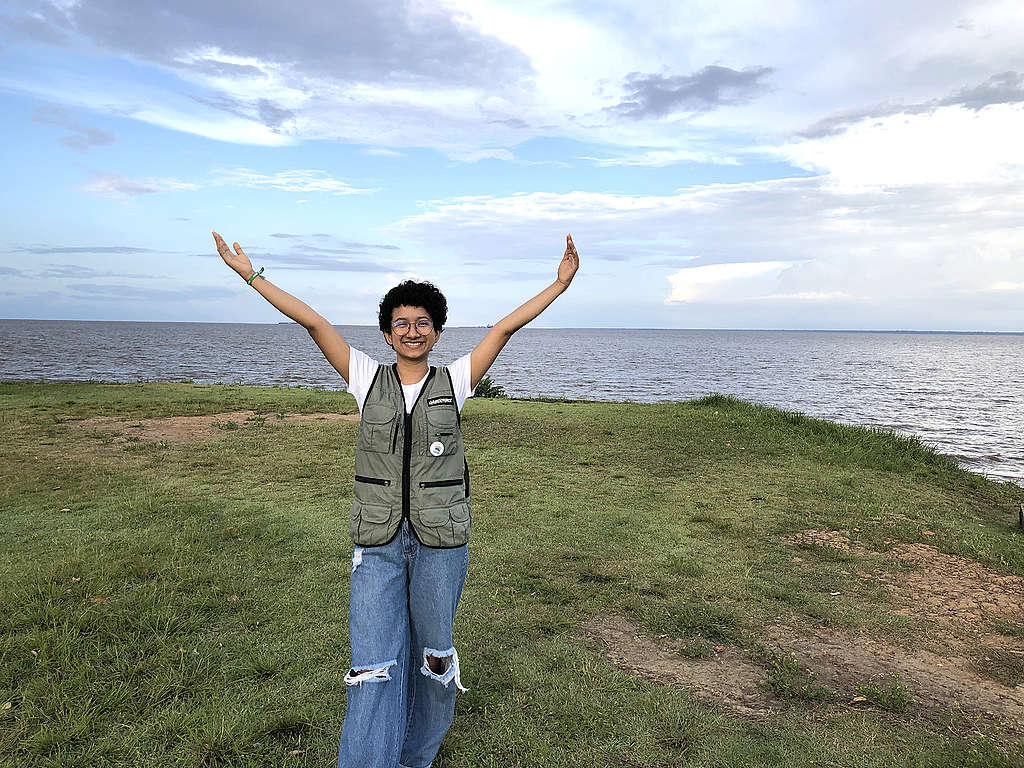
Kely grew up in the interiors of Amapá, a state in northern Brazil, where she was “surrounded by forest, in contact with animals and bathing in rivers.” Her parents worked in health and education in the Indigenous area. Kely herself now works as a socio-environmental activist and social worker.
She is disturbed by what is happening to the planet, particularly in her own backyard. “We cannot think of ways to stop climate change without first stopping the ‘bleeding’ of deforestation in the Amazon,” she says.
She joined Greenpeace Brazil as a volunteer in 2020 because she felt an intense need to be part of something bigger than her own aspirations. During her time, Kely has done collective painting with communities, technical visits to recycling companies, conducted socio-environmental awareness activities, and helped with mentoring other volunteers. She has also helped to develop socio-environmental lectures for school children.
This year, together with Greenpeace Brazil, she took part in a circle with the leadership of the Fazendinha Environmental Protection Area, where she listened to the stories of the community as they spoke of their struggles, threats, pains and achievements.
“Listening to them brought us even closer to our place, the particularities of the Amapá Amazon, what it means to be a Greenpeace activist in Amapá,” she says.
What change would you most like to see?
“I want the Amazon to belong to the lives of the Amazon. I want it to be abundant and without any kind of domination.”
Daria Timakova, 25, Greenpeace Russia
“I’m a volunteer because I love nature, I admire its beauty and perfection and I would like to see the diversity of species and ecosystems preserved. To do this, we must rethink our behaviour. I’m trying to help people understand this and to take action.”
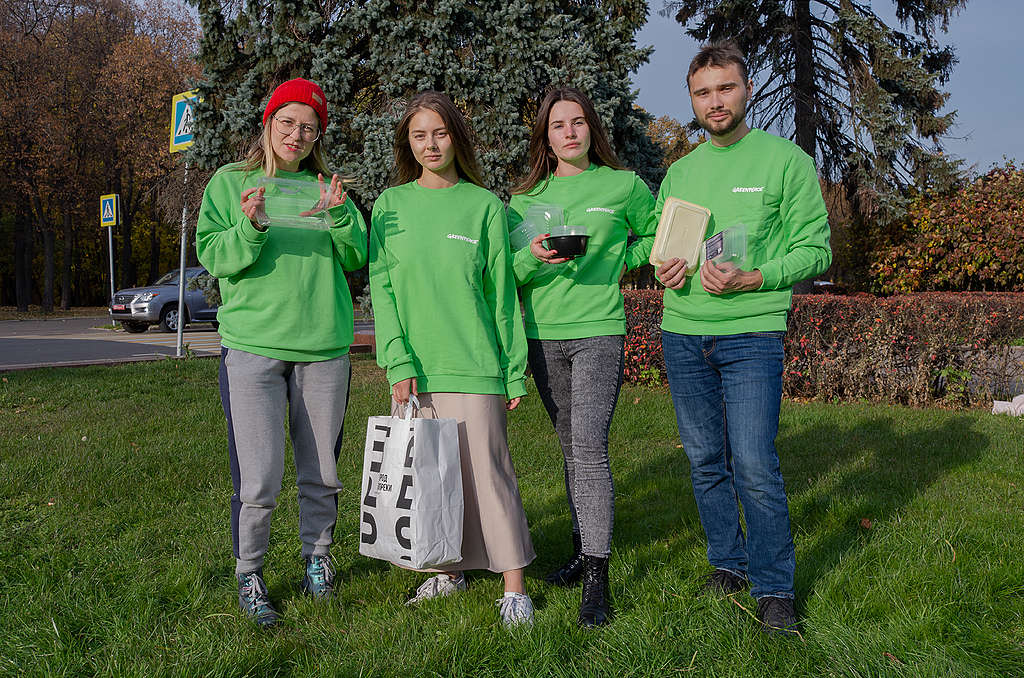
Daria is a biologist working for a scientific institute called Central Research Institute for Epidemiology in Moscow, Russia. She started volunteering with Greenpeace Russia a year and a half ago after moving to Moscow from her native city of Tula.
One of Daria’s biggest climate concerns is plastic pollution and its impact on the oceans and the planet. Last summer, she went with the Greenpeace Russia team to a waste sorting station to conduct a large-scale study related to the problem of waste recycling in Russia. Another time, she participated in a campaign to fight against plastic in the food delivery system by organising an action to draw attention to the issue.
For the past year, Daria has been volunteering for the «Recyclemap» project, which is working on an interactive map with recycling points in Russian cities. She has also given talks on Greenpeace and the concept of zero waste. “Speaking in public and people’s interest in the conservation of the environment is very inspiring,” she says
What change in the world would you most like to see?
“The change I’d like to see is in the field of power generation in Russia and all over the world. I’d like to see fossil fuel consumption reduced and alternative sources of energy used more widely. However much I’d like it though, I can’t stop at one change and I also want to see a reduction in the use of single-use plastic and a more sustainable use of our planet’s resources.”
Lu Chia-Ling, diver and preschool teacher, Greenpeace Taiwan
“I’ve been diving for nearly 20 years, and the marine environment seems to be getting worse. I have very strong feelings about this. The situation with the corals is really bad!”
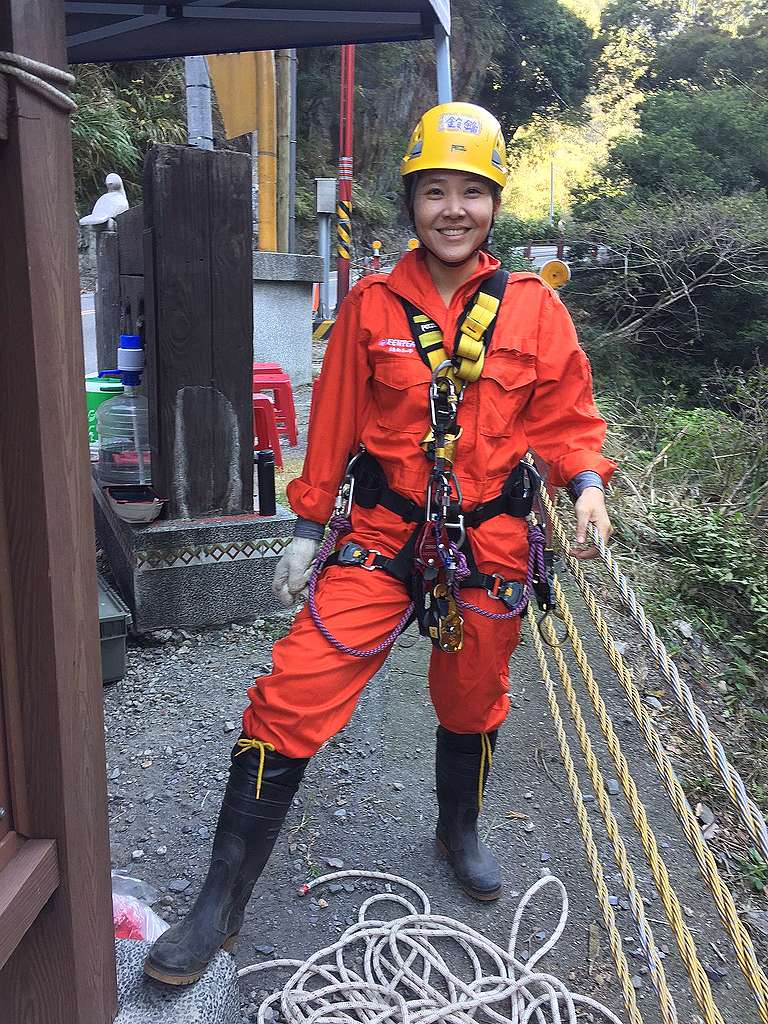
A keen diver with a deep love for the ocean, Lu Chia-Ling, started volunteering with Greenpeace Taiwan in 2013 after becoming interested in marine conservation. Naturally, her first activity with Greenpeace was helping out at an exhibition related to ocean issues. Since then, she has joined the climbing team, and participated in different actions including storytelling, exhibition tours, corporate actions, street initiatives, and clean up activities.
One of her favourite experiences with Greenpeace was participating in the Basic Action Training, where she learnt to understand and calmly communicate with people of opposing views. Before participating in an action, Greenpeace volunteers undergo rigorous training so that they are prepared.
Participating in voluntary work has introduced Chia-Ling to other like-minded friends. Her original interest on ocean issues have now expanded to include concerns about the forests, climate, food safety, and plastic pollution. It is while on this journey of volunteering and sharing that she slowly began to make changes towards a low-carbon, plastic-free lifestyle, while encouraging the same of the people around her.
“It gives me a sense of achievement to get more people to pay attention to the environment,” she says. “I can also gain a lot of new knowledge and new ideas when chatting with other volunteers in different fields. I use my profession to communicate and discuss with others, so that we can help each other to make the world a better place. And that is what makes me very happy!”
What one change would you most like to see?
“The whole world should stop eating shark fins.”
Feel inspired? Find out ways to volunteer for your local Greenpeace.
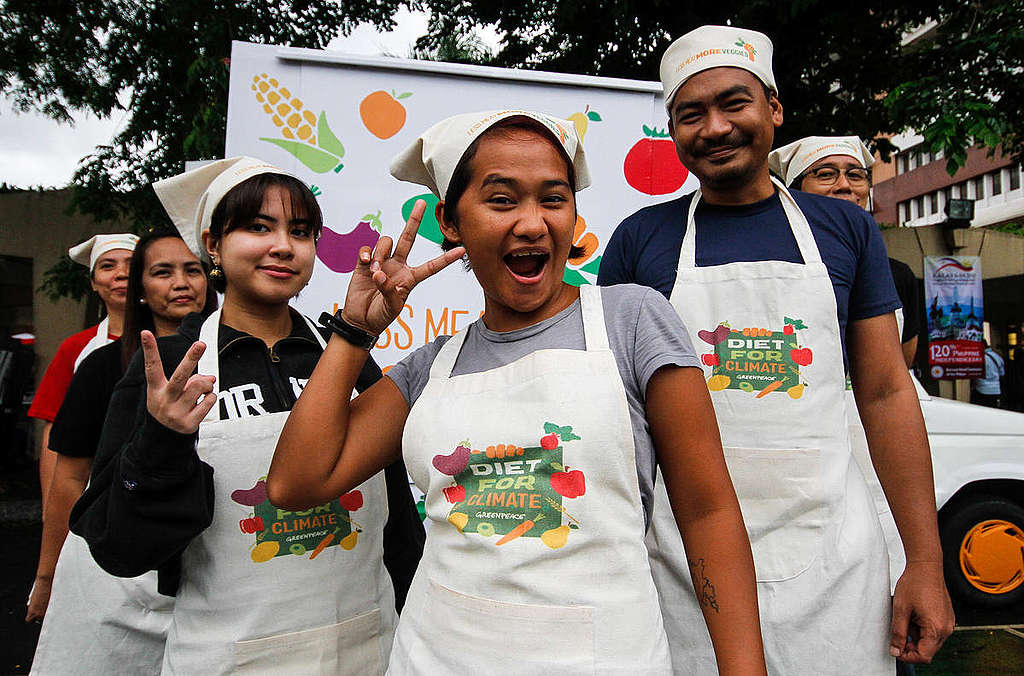
Volunteer with us
There are lots of ways to get involved with Greenpeace. Contact your local office to see if you can volunteer.
